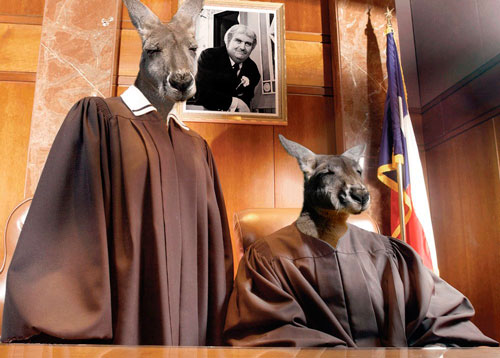
“An unofficial court held by a group of people in order to try someone regarded, especially without good evidence, as guilty of a crime or misdemeanour”

| • | swearing at a board meeting in
the heat of an argument. |
• | assaulting a
director. |
| • | telling the owners that the plumber is incompetent. | • | having an
undeclared interest in a company bidding on a contract. |
| • | rolling your eyes at a board
meeting. |
• | getting the
condo's contractors work on your apartment for free. |
| • | wanting to replace the
management company. |
• | accepting a kickback. |
| • | being "argumentative" at board
meetings. |
• | engaging in human
rights violations. |
